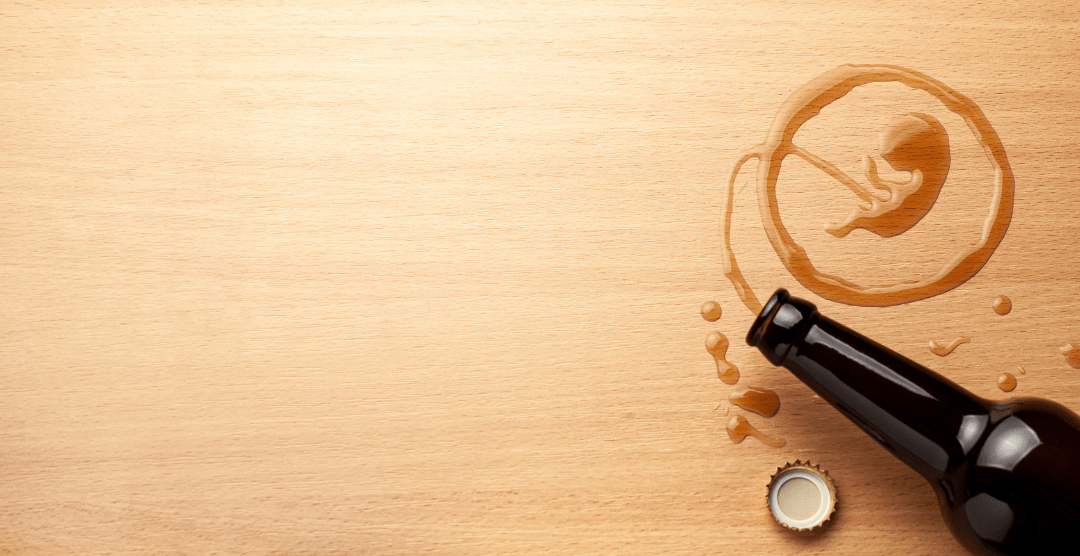Heavy drinking affects fertility in females and has been linked to a higher risk of ovulation problems. If you want to conceive, you should avoid alcohol completely. Because a safe level of fetal alcohol intake has yet to be found, abstinence at conception and during pregnancy is generally advised.1
According to a new study of drinking patterns and hormone levels at various monthly stages, both moderate (3-6 drinks per week) and heavy (more than 6 drinks per week) alcohol consumption during the post-ovulation phase of a woman’s cycle can disrupt the delicate hormonal sequence required for conception and can create fertility problems. Heavy drinking early in a woman’s cycle, before ovulation, was also proven to hinder conception, according to researchers.2
Impact of alcohol on female fertility
It can be more difficult to conceive for a woman who drinks a large amount of alcohol. Regular heavy drinking, according to recent research, might lower female fertility by:
– interfering with the menstrual cycle and ovulation which may result in heavy or irregular periods
– producing alterations in ovarian function known as amenorrhea and anovulation, respectively
– altering testosterone, estradiol, and luteinizing hormone levels
– resulting in hyperprolactinemia or high blood prolactin levels
Alcohol intake during pregnancy is also harmful, according to studies. One example of a side effect is fetal alcohol spectrum disorders.3
Can you drink alcohol when trying to conceive?
Although everyone is affected differently by alcohol, there is no doubt that the impact of alcohol on conception is strong and poses a major risk to the fetus from the moment of conception. As a result, if you’re trying to conceive, it’s best to avoid consuming any amount of alcohol to enhance your chances of a successful and healthy pregnancy.
Does alcohol affect conception and implantation?
Yes, alcohol has an effect on conception and implantation, as well as increasing the chance of early miscarriage. Factors contributing to this include:
- Ovulation, cycle regulation, and ovarian reserve are affected by heavy drinking in women. It can also hinder healthy implantation in the uterus, increasing the risk of early pregnancy loss or resorption – even before a woman realises she’s pregnant.
- Heavy drinking has been proven to reduce the hormones required for sperm development in males.4
Not only alcohol but even cigarette smoking can have a significant impact on your fertility and ability to conceive. Here’s how!
Impact of smoking on female fertility
If you’re trying to conceive soon, you should be aware that smoking has been linked to a variety of fertility concerns, including an increased chance of ectopic pregnancy and egg quality deterioration.
So, while stopping smoking before being pregnant can help reduce risks to your baby, it can also help you get pregnant in the first place.5
Can you smoke when trying to conceive?
Chemicals in cigarette smoke (such as nicotine, cyanide, and carbon monoxide) hasten the rate of egg loss. Unfortunately, eggs do not regenerate or replace themselves once they have died. This suggests that women who smoke experience menopause 1 to 4 years earlier (compared with non-smokers). Thus, it is best to avoid smoking or try quitting smoking if you can’t avoid it completely in the beginning since it will only increase your chances of being pregnant and having a healthy baby.6
Does smoking affect conception?
Heavy smoking harms your ovaries (along with your uterus) and interferes with hormone production, making it even more difficult for smokers to conceive. It also increases your chances of having a miscarriage or an ectopic pregnancy (when the egg implants outside the uterus where it is not able to develop normally).
According to a study, six or more smokes per day will considerably damage your ability to conceive. This isn’t to say that smoking fewer cigarettes per day won’t reduce fertility. However, it is undeniable that smoking six cigarettes or more every day raises your risk of acquiring health problems.
Other studies have indicated that the more cigarettes they smoke per day, the longer it will take for a couple to become pregnant. For example, a woman who smokes four cigarettes per day will take longer to conceive than a woman who smokes only two cigarettes per day. Quitting completely is definitely difficult but taking small steps by reducing the number of cigarettes each day can help you eventually quit! 7
How long does it take for fertility to improve after you quit smoking?
The longer you refrain from smoking, the better. It takes about three months to generate both sperm and eggs, so that’s how long it will be after you quit smoking before your fertility improves for both you and your partner.
Tips to quit smoking if you want to get pregnant or when you are pregnant:
1. Search for a program that can help you
Consult your doctor about a program that can assist you in quitting smoking. If you’re already pregnant, your doctor may advise you to try alternative methods of quitting smoking before turning to nicotine replacements or medications.
2. Organise your home
Do not keep cigarettes, ashtrays, or lighters in your home. Remove all of them. Clean your house and clothes to get rid of the smoking odour.
Also, keep in mind that vaping should not be considered a substitute for smoking cigarettes before or during pregnancy. Using nicotine in any form while pregnant can have an impact on the development of your baby’s brain and lungs. Alternatives to cigarettes contain chemicals that can be even more dangerous.
3. Switch up your routine
Plan how you’ll deal with your cravings when you’re tempted to reach for a smoke. If you smoke in the car, for example, start listening to audiobooks or podcasts to divert your attention. You may even chew non-nicotine gum or eat tart candies.
4. Praise yourself
It’s quite difficult to stop smoking. Pregnancy and the early stages of parenthood can be challenging as well. You’re dealing with some major issues, so remember to praise yourself on any accomplishments, no matter how minor they may appear. And don’t be too hard on yourself if you make a mistake; just take one day at a time! 8





